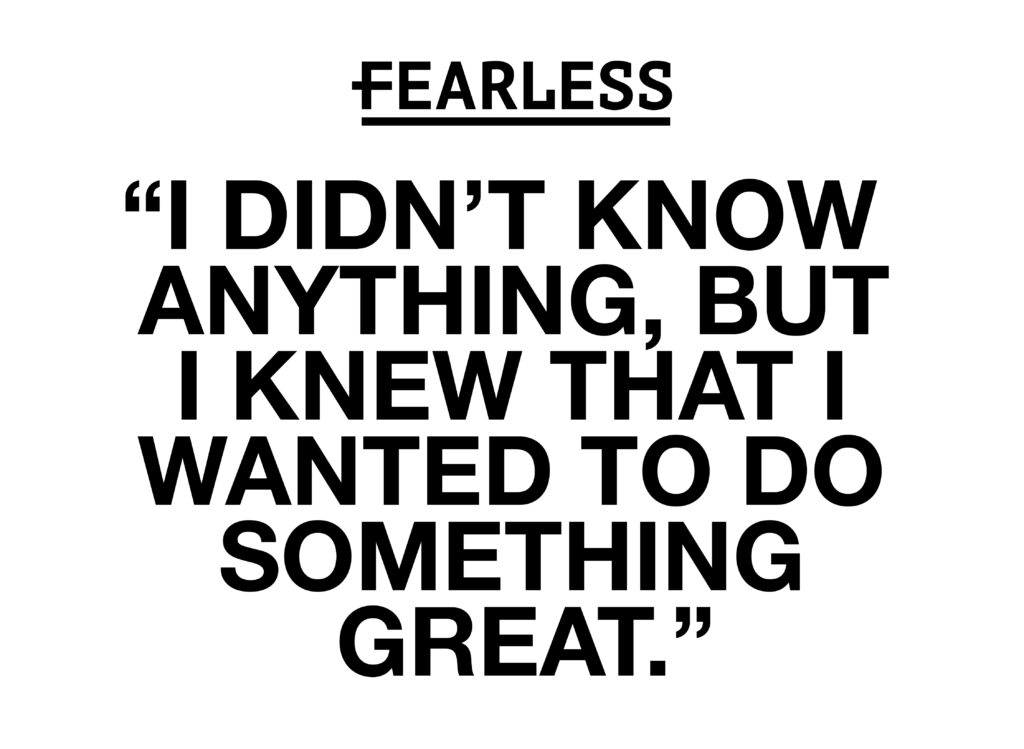“I guess they see the potential in me.”
United Way program provides employment gateway for former inmates

JOE GARDYASZ Jan 9, 2020 | 5:45 pm
4 min read time
834 wordsBusiness Record Insider, Economic Development
After dropping out of college, getting involved with the wrong crowd and making some bad choices, Sabreen Al-Hameed ended up being incarcerated at the Iowa Correctional Institute for Women.
“I thought it was the worst thing that could happen, but actually it was the best thing,” said Al-Hameed, who, less than a year after getting out of prison, recently began working at United Way of Central Iowa’s Des Moines office.
Al-Hameed, 27, is one of more than 100 ex-offenders enrolled in Central Iowa Returning Citizens Achieve (CIRCA), a pilot program led by United Way aimed at providing better education and support for former inmates reentering the workforce.
In June 2018, United Way of Central Iowa received a $1.5 million grant from the U.S. Department of Labor that it’s using to provide job training and case managers to inmates at the Newton Correctional Institute and the women’s prison in Mitchellville. The program also works with two work-release centers in Des Moines — Fresh Start Women’s Center and Fort Des Moines Community Correction Center.
After they’re released, participants in the program receive help with their job search as well as with paying for transportation and housing while they get established in the community. The project aims to assist nearly 200 ex-offenders, with a goal of securing employment for 75% of participants, and for fewer than 20% to return to prison. The overall recidivism rate for ex-offenders in Iowa is 38%.
The grant funding provides for serving 188 ex-offenders with training, job placement and support. About midway through the grant period, 118 individuals have completed the seven-week training, which represents an 86% completion rate so far. About 70% of those who have been released from prison have found jobs.
“The challenge is finding employers with good jobs,” said Pat Steele, director of Central Iowa Works, the United Way program that oversees CIRCA. “Just like any population that has what employers could see as a barrier, individuals with criminal history are often given the lowest-paying jobs. And they can’t support their families at $10 an hour.
“We’re trying to encourage employers to give them a chance in the jobs that are a little bit higher skill or that pay a little bit more,” he said. “I think one of the perceptions of the community has is that the people that are incarcerated aren’t smart, and that’s why they’re incarcerated. That’s not at all true.”
Among the dozens of Central Iowa companies that are participating in CIRCA, Michael’s Foods in Norwalk has been particularly receptive to working with ex-offenders, said Amber Ramirez, CIRCA’s program manager.
“They’re opening this big facility, and they’re not on a bus line,” she said. “So they’ve had to do a lot of creative thinking in order to find employees. We’ve found that they’re willing to look at our participants because we have case managers that were working with them all along. And that helped them with issues that come up. So it’s really less risky to hire one of our participants than just someone off the street who isn’t necessarily working with anyone.”
Iowans with felony convictions face multiple hurdles in getting integrated back into the community. Driving restrictions are among the biggest barriers, as ex-offenders can face a lengthy process in getting back their license and being allowed to drive, Ramirez said.
“I feel like it should be a faster process for them to be able to drive again, because they’re expected to get a job,” Ramirez said. “That’s why a lot of people get a lower-paying job is because they’re required to work if they’re in any sort of parole. So they’ll take the first job that comes along, even if they have the skills to do a better job.”
Another issue that’s been surprising to the counselors is the high amount of court-related debt that people have coming out of prison — on average about $18,000 — with at least half that being county jail fees that accrued daily as they were awaiting trial.
Some state legislatures have addressed this issue by reducing or forgiving this debt, Steele said. He said he would favor an incentive-based program in which a portion of debt is forgiven after an ex-offender has made consistent payments for a few years.
During the seven months she was in prison, Al-Hameed completed a certificate program in transportation, distribution and logistics through Des Moines Area Community College, which led to her being hired by a logistics company in Des Moines. She worked there for six months before an opportunity came up to work at United Way.
“I guess they see the potential in me,” Al-Hameed said of her new job at United Way, which is actually two part-time positions — community resource specialist for the 2-1-1 program, and administrative assistant for Central Iowa Works. Eventually, she hopes to return to college for training in human resources and get involved in some type of outreach work, she said.
“They’re giving me a chance to get some experience.”









